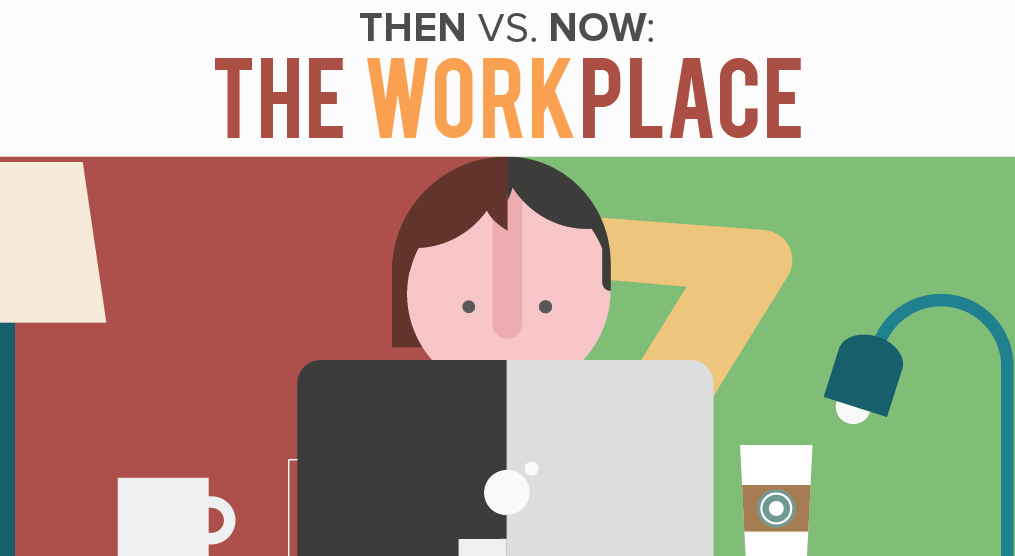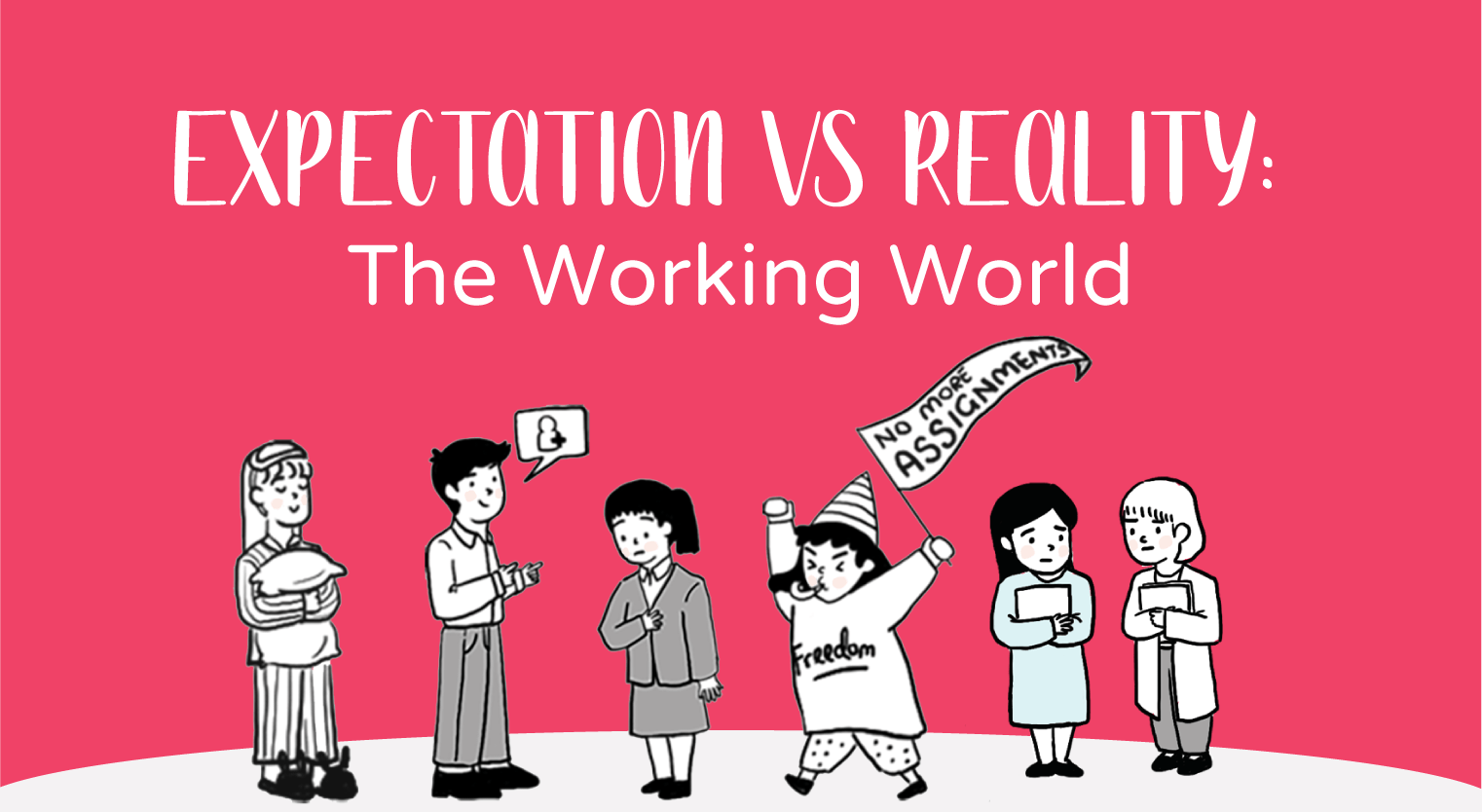5 Career Attitudes Every Student Should Quit, or You’ll Risk Failing
Stepping into the working world for the first time can be scary but keeping this attitude in mind may just lead to disaster. Here’s how to stop it.
Published 21 May 2021

Whether you’ve just finished high school or a college student looking for internship opportunities, you’ve probably thought about career strategies and how you can strive in your job. Yet, many of you may not know what to expect in a working environment. And if it’s your first time in the working world, mistakes are bound to happen.
Well, we’re here to help you avoid it by giving you a heads up on a few career attitudes that you need to quit before diving into the working world.
#1. Assuming that your career will be linear

“Go to school, get a good job, work hard, succeed in your career then retire when you’re 65."
You’ve probably heard your parents say this one too many times. That’s why it’s easy to assume that your career pathway will be straightforward. The truth is, it won’t.
Take these celebrities who were actually medical graduates for instance. With the ever changing job market, advancement of technology and new opportunities emerging, chances are your pathway will change just like your interests — and that’s okay. Many people find success in fields outside of their university degree, so don’t think that you have to pursue a career in your field of study.
Consider seeing your career pathway as a jungle gym rather than a ladder. While this can appear daunting especially when you can’t measure your progress if there isn’t a benchmark, this mindset can save you from disappointment if your expectations aren’t met. Besides, you never know what exciting opportunities are there for the taking.
#2. Prioritising money over interests

If you’re in a financial crutch, choosing jobs solely on passion can be hard, especially when your interests lie somewhere off the beaten path, such as becoming a musician as opposed to a banker. Imagine working day in and day out on something you hate for years on end — it will bound to negatively impact your well-being.
Including your interests into your career search goes a long way when you like what you do. You’ll be more inspired and productive when working on new projects and completing tasks. The phrase, “choose a job you love, and you’ll never work a day in your life” may seem like a washed-out cliche, but it holds some truth.
If you have too many obligations and can’t risk passing up money, consider pursuing your passion on the side. If you’re a creative at heart, attend workshops or start a creative project on your own.
Security is key but so is your well-being. Don’t chase the paper only to be burdened with regret and burnouts.
#3. Job hopping for the money

The era of staying with the same company from graduation to retirement is over. Shifts in interest, work-life balance, high pay and advancement opportunities all play a part in millennials and Gen Z’s job hopping culture.
While switching jobs can boost your experience, skills and earning, too much job hopping can negatively affect your career — especially when you’ve only worked for a short time between jobs. This could send a red flag to hiring managers that you might do the same with their company. Consider staying at a workplace for more than a year rather than months as you’ll acquire more skills and experience this way.
In addition, try and stick with the same field and skillset when you’re job hopping. It’s okay to change directions but you don’t want your resume to be scattered with one unrelated gig to another. Your CV should tell a story, even if it doesn’t show a linear progression up the corporate ladder.
A clear evidence that job hopping is working in your favour is when you’re advancing in your career. Your resume shows growth (and so does your earnings). This shows employers that you’re productive and that you’re moving forward by job hopping rather than just moving around.
Apply for university with EduAdvisor
Secure scholarships and more when you apply to any of our 100+ partner universities.
Start now#4. Being too afraid to ask for a raise

Whether you’re negotiating higher pay in a job offer or vying for a promotion in your current role, discussing salary can be stressful and even uncomfortable. There’s nothing more awkward than being turned down for something you’re embarrassed to ask about.
But in truth, this discomfort will only hold you back in your career. Taking on a lower paying salary for a demanding job or staying at the same place with no increment can affect your motivation and job performance. Consider this short-term discomfort a small price to pay for reaching your full earning potential in the long run.
So, don’t be afraid to show up armed with reasons why you deserve a raise. Make a list of your accomplishments and what you plan to achieve in the upcoming year. This gives your employee an idea that you’re committed to growth and pushing the company forward.

#5. You’re too independent to ask for help

Whether you have too much on your plate or you have no idea what you’re doing, asking for help can sometimes be perceived as a sign of weakness or incompetence. So you rather shy away and do everything by yourself than asking for support.
In truth, asking for help offers more benefits than you think. Not only does it show that you’re aware of your capabilities and lack thereof, but you’re also committed and resourceful enough to do something about it. In fact, asking for help can also foster deeper relationships with your coworkers. If any, they’re providing you with information you might not be privy to. You’ll be more likely to handle things on your own the minute you get the hang of things.
Asking for help is an important part of your working life. There will be times when you need help and times when help is needed from you. So, quit thinking that asking for help is a sign of weakness because shying away from this will only hinder you from learning the necessary skills for you to grow in your career.
Remember that while starting your first job can be tough, you will eventually get the hang of things by learning how to conduct yourself in the appropriate manner and staying positive. All the best!






